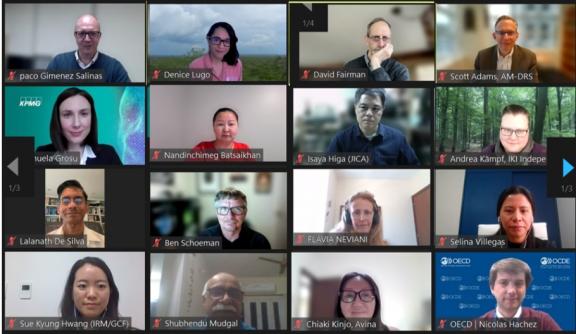Flexible sequencing for dispute resolution and compliance review: GRAM partnership webinar with the IRM
Since the establishment of the first independent accountability mechanism thirty years ago, over two dozen International Accountability Mechanisms (IAMs) have been created to ensure that people and communities negatively affected by investments can seek remedy. Many of these IAMs are operating according to a similar set of detailed rules of procedure and follow a sequential approach where cases start with mediation and move towards compliance review if discussions fail. However, common practice may not always be the most beneficial for the advancement of a case. A collection of several CSOs recently published a paper that identifies the best provisions for effective mechanisms. In “Good Policy Paper: Guiding Practice from the Policies of Independent Accountability Mechanisms,” they highlight the importance and value of allowing complainants to choose between dispute resolution, compliance review, and their sequence.
The 8th GRAM webinar on the 31st of March 2023 was hosted by the GCF’s Independent Redress Mechanism (IRM) and focused on handling complaints through a flexible sequencing approach. Herein, cases do not have to follow the standard order of mediation followed only by a compliance review if the parties cannot come to an agreement. The webinar discussed the strengths and weaknesses of using parallel processing or hybrid models when managing a complaint.
Manuela Grosu, attorney-at-law with KPMG Hungary, provided an overview of hybrid models in mediation and arbitration in commercial disputes. Paco Gimenez-Salinas, IRM Head ad interim, shared the IRM’s experience with parallel processes from a recent case taking place in Nicaragua and the benefits and complications encountered during this process. Lastly, the webinar concluded with a panel discussion by David Fairman and Scott Adams on points of consideration for GRAMs that are contemplating different approaches to handling complaints.
David Fairman, a senior mediator at the Consensus Building Institute, highlighted the different factors GRAMs have to consider in comparison to the commercial context, and Scott Adams, a Senior Dispute Resolution Officer at the World Bank Accountability Mechanism, discussed the options GRAMs could have under current policies. The webinar was moderated by Peter Carlson, a Communications Associate with the IRM, who closed the session with a Q&A.

